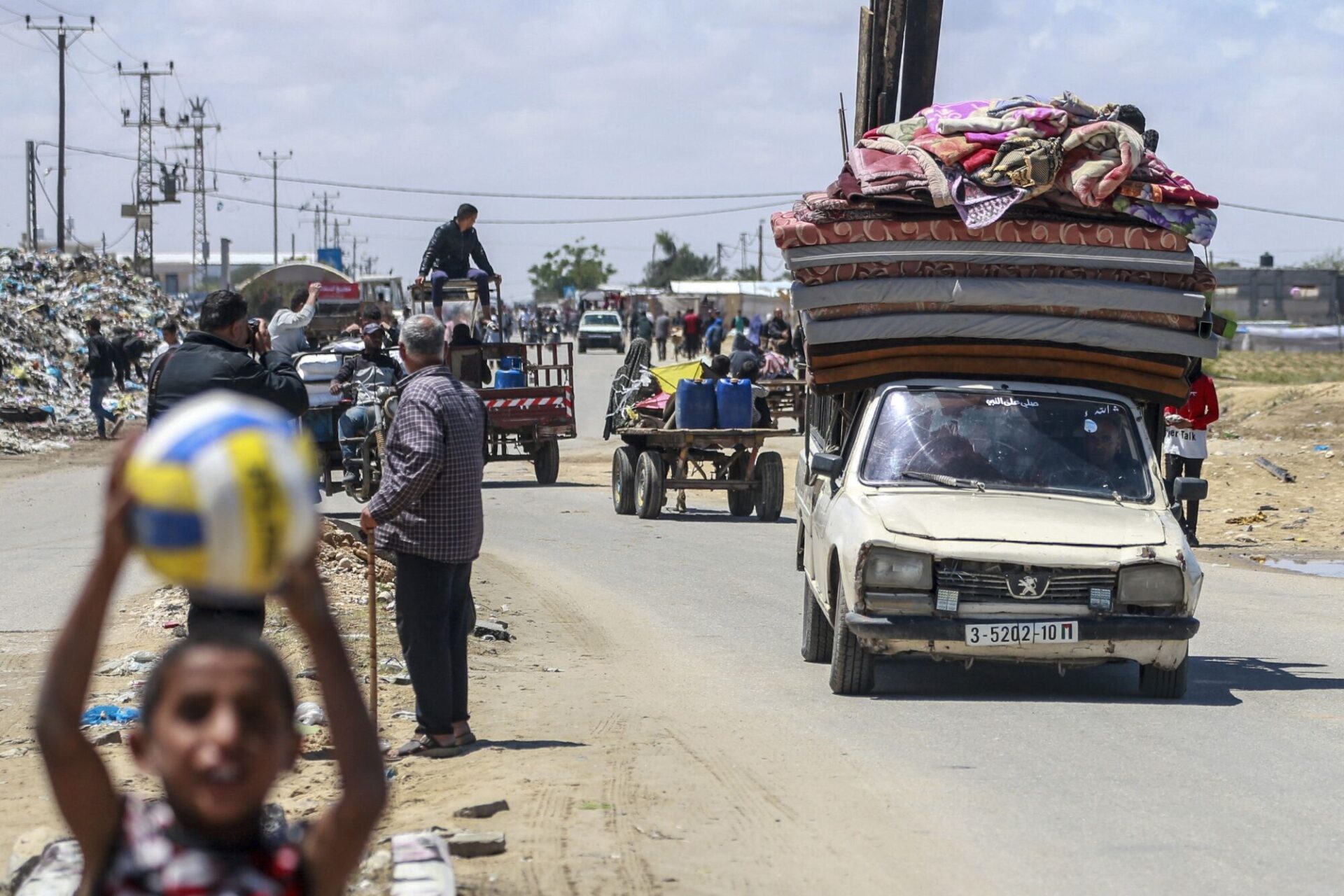Women in Afghanistan can continue to study in universities, including at the postgraduate level, but classrooms will be gender-segregated and head coverings will be compulsory.
Higher Education Minister Abdul Baqi Haqqani laid out the new policies at a news conference on Sunday, a day after the Taliban raised their flag over the presidential palace, signaling the start of work of the new, all-male government announced last week.
The Taliban’s rise has stoked fears the group would turn back to the draconian rule that defined its first stint in power in Afghanistan 20 years ago. That included the denial of education for girls and women, as well as their exclusion from public life.
“We will start building on what exists today,” Haqqani said, maintaining the Taliban’s position that its attitudes, particularly towards women, have shifted in the past 20 years.
The most recent statement comes as the group has sought international legitimacy following its lightning-fast offensive across the country as the United States prepared to withdraw troops by an August 31 deadline. The Taliban took Kabul on August 15.
Despite the Taliban’s posturing, women have been banned from sports and the Taliban has used violence in recent days against female protesters demanding equal rights.
On Sunday, Haqqani said female university students will face restrictions that include a compulsory dress code. He said hijabs will be mandatory but did not specify if this meant compulsory headscarves or also compulsory face coverings.
Gender segregation will also be enforced, he said. “We will not allow boys and girls to study together,” he said. “We will not allow co-education.”
He said female students would be taught by women wherever possible. “Thanks to God we have a high number of women teachers. We will not face any problems with this. All efforts will be made to find and provide women teachers for female students,” he said.
Haqqani said the subjects being taught would also be reviewed.
While he did not elaborate, he said he wanted graduates of Afghanistan’s universities to be competitive with university graduates in the region and the rest of the world.
The Taliban, which subscribes to a strict and distinct interpretation of Islam, banned music and art during its previous time in power.
This time around, television has remained and news channels still show women presenters, but the Taliban messaging has been erratic.
In an interview on Afghanistan’s popular TOLO News, Taliban spokesman Syed Zekrullah Hashmi said women should give birth and raise children, and while the Taliban has not ruled out eventual participation of women in government, the spokesman said, “It’s not necessary that women be in the cabinet.”
The new higher education policy signals a change from the accepted practice before the Taliban takeover. Universities were co-ed, with men and women studying side by side, and female students did not have to abide by a dress code.
However, the vast majority of female university students opted to wear headscarves in line with religious, personal and cultural preferences.
In elementary and high schools, boys and girls were taught separately before the Taliban came to power.
On Saturday, a group apparently made up of women students in black robes that covered them completely from head to foot, demonstrated in Kabul in support of the rules on dress and separate classrooms.
Haqqani said where no women teachers were available special measures would be adopted to ensure separation.
“When there is really a need, men can also teach [women] but in accordance with sharia, they should observe the veil,” he said. Classrooms would be curtained off to divide male and female students where necessary and teaching could also be done through streaming or closed-circuit TV.
Classrooms divided by curtains have already been seen in many places since the Western-backed government collapse and the Taliban seized Kabul last month.



 Naira4 weeks ago
Naira4 weeks ago


 Naira3 weeks ago
Naira3 weeks ago


 News4 weeks ago
News4 weeks ago
 Travel4 weeks ago
Travel4 weeks ago




 Naira4 weeks ago
Naira4 weeks ago
 Naira3 weeks ago
Naira3 weeks ago


 Jobs3 weeks ago
Jobs3 weeks ago


 Travel3 weeks ago
Travel3 weeks ago












